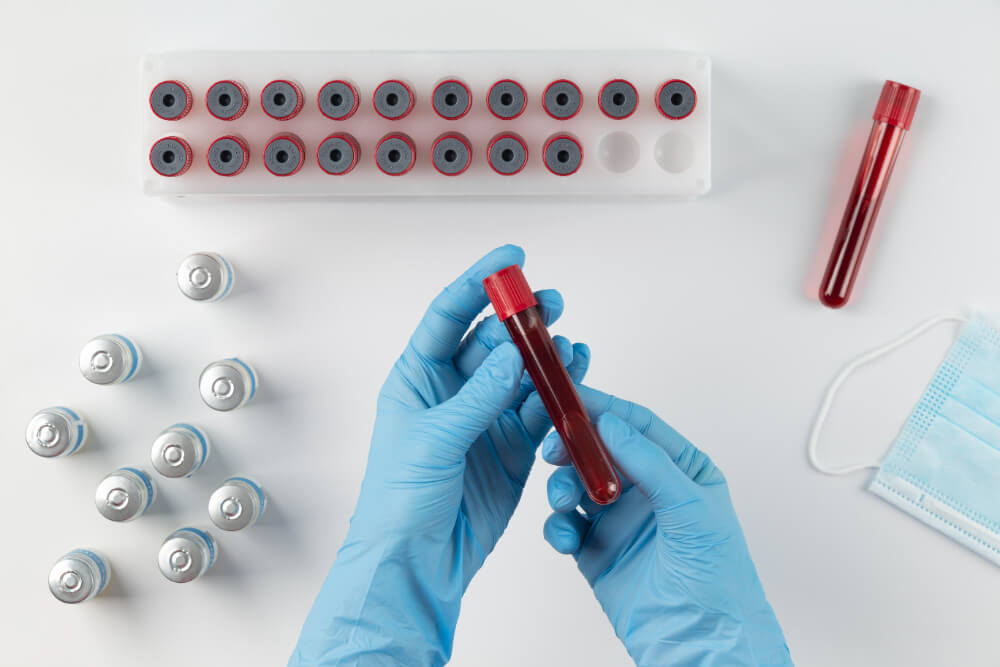The Importance of Syphilis Testing: Protecting Your Sexual Health
Syphilis is a sexually transmitted infection (STI) that can have serious health consequences if left untreated. It progresses through stages, each with its own set of symptoms, and can ultimately damage the heart, brain, and nervous system.

Understanding Syphilis and its SymptomsWhat is Syphilis?
Syphilis is a sexually transmitted infection (STI) caused by the bacterium Treponema pallidum. It progresses through multiple stages: primary, secondary, latent, and tertiary. Early detection is crucial for effective treatment and to prevent severe complications, including neurological and cardiovascular damage.
Stages of Syphilis:
- Primary Syphilis: Characterized by the appearance of a painless sore (chancre) at the site of infection, usually on the genitals, mouth, or rectum.
- Secondary Syphilis: Occurs weeks to months after the initial infection and may include a rash, fever, swollen lymph nodes, and hair loss.
- Latent Syphilis: A period where the infection is inactive but still present in the body.
- Tertiary Syphilis: Can occur years after the initial infection and can damage the heart, brain, nerves, eyes, and blood vessels.
Symptoms:
- The symptoms of syphilis can vary depending on the stage of infection.
- Some individuals may experience no symptoms at all.
- Early symptoms may include:
- Sores on the genitals, mouth, or rectum
- Rash on the palms of the hands or soles of the feet
- Fever
- Swollen lymph nodes
- Muscle aches
- Fatigue
- Hair loss
Why is Syphilis Testing Important?
Syphilis testing is vital for:
- Detecting infections early.
- Preventing transmission to sexual partners.
- Ensuring timely treatment to avoid complications.
- Protecting unborn children from congenital syphilis in pregnant individuals.
Who Should Get Tested for Syphilis?
The Centers for Disease Control and Prevention (CDC) recommends syphilis testing for:
- Individuals with symptoms of syphilis.
- Pregnant individuals as part of routine prenatal care.
- People diagnosed with other STIs, such as HIV.
- Individuals with multiple sexual partners.
- Those who engage in unprotected sex.
- Men who have sex with men (MSM).
- People with partners who have tested positive for syphilis.
Types of Syphilis Tests
Syphilis testing involves detecting antibodies or the bacterium directly. The primary tests include:
1. Nontreponemal Tests
Nontreponemal tests detect antibodies produced as a response to syphilis. These tests are typically used for screening:
- Rapid Plasma Reagin (RPR): A common blood test that detects syphilis antibodies.
- Venereal Disease Research Laboratory (VDRL): Another blood test, which can also be used on cerebrospinal fluid to diagnose neurosyphilis.
Pros and Cons of Nontreponemal Tests
- Pros: Cost-effective, widely available, and quick results.
- Cons: Potential for false positives due to other infections or conditions.
2. Treponemal Tests
Treponemal tests confirm a syphilis diagnosis by detecting specific antibodies against Treponema pallidum:
- Fluorescent Treponemal Antibody-Absorption (FTA-ABS): A detailed test to confirm syphilis.
- T. pallidum Particle Agglutination (TP-PA): Another confirmatory test.
- Enzyme Immunoassays (EIAs): Modern tests that are highly specific.
When Are Treponemal Tests Used?
Treponemal tests are typically used after a positive nontreponemal test to confirm the diagnosis.
3. Direct Detection Methods
In some cases, syphilis can be diagnosed by directly detecting the bacterium:
- Darkfield Microscopy: Used to identify Treponema pallidum in sores or lesions.
- Polymerase Chain Reaction (PCR): A molecular test to detect bacterial DNA.
Advantages of Direct Detection Methods
These methods are highly specific and useful when lesions are present, especially in the primary stage.
Understanding Test Results

Positive Results
A positive result indicates syphilis infection. Further evaluation and treatment will be required.
Negative Results
A negative result typically means no infection. However, early-stage syphilis may not be detected; retesting may be necessary.
False Positives and Negatives
- False positives can occur due to autoimmune disorders or other infections.
- False negatives are possible in the early or latent stages of syphilis.
Preventing Syphilis
Preventative measures include:
- Consistent use of condoms and dental dams.
- Regular STI testing for sexually active individuals.
- Open communication with sexual partners about STI status.
- Avoiding substance use that may impair judgment during sexual activities.
Syphilis in Pregnancy
Pregnant individuals should undergo syphilis testing as part of routine prenatal care. Untreated syphilis can lead to congenital syphilis, causing severe complications for the baby, including stillbirth or developmental issues. Early detection and treatment are essential to prevent transmission to the fetus.
Conclusion
Syphilis testing is a crucial component of sexual health. Early detection, proper diagnosis, and timely treatment can prevent severe complications and transmission to others. Regular testing, particularly for at-risk individuals, ensures better health outcomes and helps control the spread of this infection.
Contact our Sexual health clinic for STI testing of syphilis (469) 981-0529 Or visit us https://tscmlk.com/
